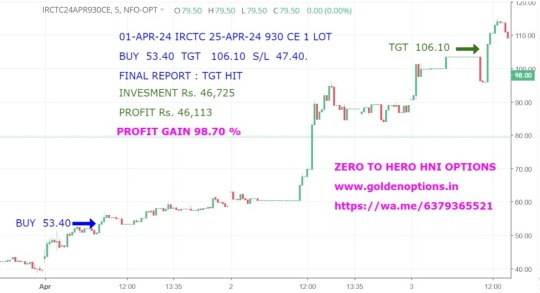#stock investment tips
Text
{ MASTERPOST } Everything You Need to Know about Retirement and How to Retire
How to start saving for retirement
Dafuq Is a Retirement Plan and Why Do You Need One?
Procrastinating on Opening a Retirement Account? Here’s 3 Ways That’ll Fuck You Over.
Season 4, Episode 5: “401(k)s Aren’t Offered in My Industry. How Do I Save for Retirement if My Employer Won’t Help?”
How To Save for Retirement When You Make Less Than $30,000 a Year
Workplace Benefits and Other Cool Side Effects of Employment
Your School or Workplace Benefits Might Include Cool Free Stuff
Do NOT Make This Disastrous Beginner Mistake With Your Retirement Funds
The Financial Order of Operations: 10 Great Money Choices for Every Stage of Life
Advanced retirement moves
How to Painlessly Run the Gauntlet of a 401k Rollover
The Resignation Checklist: 25 Sneaky Ways To Bleed Your Employer Dry Before Quitting
Ask the Bitches: “Can I Quit With Unvested Funds? Or Am I Walking Away From Too Much Money?”
You Need to Talk to Your Parents About Their Retirement Plan
Season 4, Episode 8: “I’m Queer, and Want To Find an Affordable Place To Retire. How Do I Balance Safety With Cost of Living?”
How Dafuq Do Couples Share Their Money?
Ask the Bitches: “Do Women Need Different Financial Advice Than Men?”
From HYSAs to CDs, Here’s How to Level Up Your Financial Savings
Season 3, Episode 7: “I’m Finished With the Basic Shit. What Are the Advanced Financial Steps That Only Rich People Know?”
Speaking of advanced money moves, make sure you’re not funneling money to The Man through unnecessary account fees. Roll over your old retirement accounts FO’ FREE with our partner Capitalize:
Roll over your retirement fund with Capitalize
Investing for the long term
When Money in the Bank Is a Bad Thing: Understanding Inflation and Depreciation
Investing Deathmatch: Investing in the Stock Market vs. Just… Not
Investing Deathmatch: Traditional IRA vs. Roth IRA
Investing Deathmatch: Stocks vs. Bonds
Wait… Did I Just Lose All My Money Investing in the Stock Market?
Financial Independence, Retire Early (FIRE)
The FIRE Movement, Explained
Your Girl Is Officially Retiring at 35 Years Old
The Real Story of How I Paid off My Mortgage Early in 4 Years
My First 6 Months of Early Retirement Sucked Shit: What They Don’t Tell You about FIRE
Bitchtastic Book Review: Tanja Hester on Early Retirement, Privilege, and Her Book, Work Optional
Earning Her First $100K: An Interview with Tori Dunlap
We’ll periodically update this list with new links as we continue writing about retirement. And by “periodically,” we mean “when we remember to do it.” Maybe remind us, ok? It takes a village.
Contribute to our staff’s retirement!
Holy Justin Baldoni that’s a lot of lengthy, well-researched, thoughtful articles on the subject of retirement. It sure took a lot of time and effort to finely craft all them words over the last five years!
In case I’m not laying it on thick enough: running Bitches Get Riches is a labor of love, but it’s still labor. If our work helped you with your retirement goals, consider contributing to our Patreon to say thanks! You’ll get access to Patreon exclusives, giveaways, and monthly content polls! Join our Patreon or comment below to let us know if you would be interested in a BGR Discord server where you can chat with other Patrons and perhaps even the Bitches themselves! Our other Patrons are neat and we think you should hang out together.
Join the Bitches on Patreon
#retirement#retire#how to retire#retirement account#retirement fund#retirement funds#401k#403b#Roth IRA#Traditional IRA#investing#investors#investing in stocks#Capitalize#401k rollover#personal finance#money tips
404 notes
·
View notes
Text
"Let’s have a look now at stock tips.
There are many ways to be successful at stocks. For instance, you can be lucky, or you can cheat. Those are the two ways.
Lucky is difficult. Not impossible, but it does require some spells. You have to wear a small bag around your neck stuffed with thistle and rosemary, and burn the one thing in your life most precious to you. And even then, half the time you just end up with your sourdough turning out perfect, or getting Wordle in two, which if you think about it is actually much more impressive than getting it in one, you will say to everyone you know even though they extremely do not care. What I’m saying is it’s hard to aim luck.
So your best bet is to cheat. Fortunately, there are a TON of ways to cheat. For instance, you can do some corporate espionage, find out information before it hits the open market, and then invest accordingly. Or you can manipulate the markets, causing untold suffering and wiping out the entire economy for the sake of buying your third house. If history tells us anything, and I hope it doesn’t, you won’t ever get punished.
But the absolute best way to cheat, and doctors hate this one weird trick, is to join congress. Because there is no law against actively investing while in congress despite the fact that you will be constantly told secret information that will radically affect the markets. And you can just make a ton of money on that info without any consequences because who is going to pass a law against that? You? Don’t make me laugh. Please don’t make me laugh. It hurts so terribly when I laugh. Ow. Ouch. Oh man. I miss laughing. I miss it so much.
This has been stock tips."
- Joseph Fink and Jeffrey Cranor, from Welcome to Night Vale, ep. 220.
#joseph fink#jeffrey cranor#quote#quotations#welcome to night vale#wtnv#stock market#trading stocks#stock trading#eat the rich#greed#stock tips#investing stocks#corruption#capitalism
157 notes
·
View notes
Text
Mastering Personal Finance and Investing: Your Ultimate Guide to Financial Freedom
Introduction: Understanding the Importance of Personal Finance and Investing
Personal Finance and Investing: Your Path to Financial Freedom
Importance of Personal Finance and Investing for Wealth Creation
The Basics of Personal Finance: Budgeting, Saving, and Debt Management
Mastering the Basics: Budgeting, Saving, and Debt Management
Budgeting Tips for Effective Personal Finance…
View On WordPress
#personal finance#financial planning#money management#budgeting#savings#debt management#investing#wealth creation#retirement planning#401(k)#IRA#stock market#real estate investing#compound interest#tax planning#financial freedom#financial education#money tips#financial goals#investment strategies#financial literacy#wealth management#financial advice#financial independence#money mindset#financial success
20 notes
·
View notes
Text
Four Investments That Are Very Profitable Right Now in 2023

The most profitable investments in 2023 are a matter of opinion, but some of the top contenders include:
1. High yield savings accounts offer much higher interest rates than traditional savings accounts. This makes them a good choice for investors who want to get a higher return on their money, but also want to keep their money safe and accessible.
2. Short-term certificates of deposit (CDs) offer similar interest rates to high-yield savings accounts, but they come with the added benefit of locking in your interest rate for a set period of time. It can be a good choice for investors looking to protect their money from market volatility.
3. Series I bonds, government bonds that offer variable interest rates linked to inflation. This makes it a good choice for investors looking to protect their money from the effects of inflation.
3. Short-term corporate bond funds invest in corporate bonds with maturities of less than one year. These funds offer higher yields than traditional bonds, but also carry more risk.
4. Dividend stock funds invest in stocks that pay dividends to their shareholders. Dividends are a way for companies to share their profits with their shareholders, and they can provide a steady stream of income for investors.
It is important to note that all investments carry a certain level of risk. Investors should carefully consider their investment objectives and risk tolerance before making any investment decisions.
I Started Doing From Now On
Simple Investing Hub
#investment#investors#breaking news: investing#investing#simple plan#simple life#june#juni 2023#stock tips#savings
23 notes
·
View notes
Text

05 APR 2024
TATACHEM 1100 CE TGT HIT
PROFIT Rs. 42,460.
www.goldenoptions.in
https://wa.me/6379365521
4 notes
·
View notes
Text
Top Strategies for Successful Stock Trading - Unirav Shopping

Navigating the stock market can be both exhilarating and daunting. For beginners and seasoned investors alike, successful stock trading requires a strategic approach, a solid understanding of market dynamics, and continuous learning. This blog delves into the top strategies for successful stock trading, emphasizing the importance of planning, discipline, and informed decision-making.
1. Educate Yourself
Before diving into stock trading, it’s crucial to educate yourself about the market. Understanding the basic concepts, terminology, and mechanics of trading will lay a strong foundation for your investment journey.
Books and Online Courses: There are numerous resources available, from classic investment books like “The Intelligent Investor” by Benjamin Graham to online courses offered by reputable institutions.
Financial News and Websites: Stay updated with financial news, market trends, and analysis from trusted sources like Bloomberg, CNBC, and MarketWatch.
Stock Simulators: Use stock simulators to practice trading without risking real money. This hands-on experience can help you understand market fluctuations and trading strategies.
2. Set Clear Goals and Objectives
Having clear financial goals and objectives is essential for successful stock trading. Define what you want to achieve with your investments, whether it’s long-term wealth accumulation, short-term gains, or income generation.
Risk Tolerance: Assess your risk tolerance to determine the types of stocks and trading strategies that suit you.
Time Horizon: Consider your investment time horizon, as this will influence your trading decisions and risk management strategies.
Capital Allocation: Decide how much capital you are willing to invest in the stock market and how you will allocate it across different stocks and sectors.
3. Develop a Trading Plan
A well-defined trading plan acts as a roadmap for your trading activities. It helps you stay disciplined and focused, reducing the likelihood of impulsive decisions.
Entry and Exit Criteria: Establish clear criteria for entering and exiting trades. This can include technical indicators, fundamental analysis, or a combination of both.
Position Sizing: Determine the size of your positions based on your risk tolerance and the overall market conditions.
Risk Management: Implement risk management strategies to protect your capital. This can involve setting stop-loss orders, diversifying your portfolio, and avoiding overleveraging.
4. Conduct Thorough Research
Thorough research is the backbone of successful stock trading. Analyzing companies, industries, and market trends can help you make informed investment decisions.
Fundamental Analysis: Evaluate a company’s financial health by examining its earnings, revenue, profit margins, and balance sheet. Pay attention to industry trends and economic factors that could impact the company’s performance.
Technical Analysis: Use technical analysis tools to study price charts, patterns, and indicators. This can help you identify potential entry and exit points and gauge market sentiment.
Sentiment Analysis: Monitor investor sentiment and news to understand the market’s mood and potential impact on stock prices.
5. Diversify Your Portfolio
Diversification is a crucial risk management strategy that involves spreading your investments across different asset classes, sectors, and geographic regions. This can help reduce the impact of any single stock’s poor performance on your overall portfolio.
Asset Allocation: Allocate your capital across various asset classes, such as stocks, bonds, and commodities, to balance risk and reward.
Sector Diversification: Invest in stocks from different sectors to mitigate sector-specific risks.
Geographic Diversification: Consider investing in international stocks to reduce exposure to country-specific economic and political risks.
6. Stay Disciplined and Emotionally Detached
Emotional decision-making can be detrimental to stock trading. It’s essential to stay disciplined and stick to your trading plan, regardless of market volatility or emotional impulses.
Avoid Overtrading: Overtrading can lead to increased transaction costs and reduced overall returns. Stick to your trading plan and avoid making impulsive trades.
Manage Fear and Greed: Fear and greed are common emotions in stock trading. Develop strategies to manage these emotions, such as setting realistic expectations and using stop-loss orders.
Review and Adjust: Regularly review your trading plan and performance. Make necessary adjustments based on changing market conditions and your financial goals.
7. Utilize Stop-Loss and Take-Profit Orders
Stop-loss and take-profit orders are essential tools for managing risk and protecting your capital. These orders automatically close your positions at predetermined price levels, helping you lock in profits and limit losses.
Stop-Loss Orders: Set stop-loss orders to automatically sell a stock if its price falls below a certain level. This helps protect your capital from significant losses.
Take-Profit Orders: Use take-profit orders to automatically sell a stock when it reaches a predetermined profit level. This allows you to lock in gains and avoid holding onto winning positions for too long.
8. Keep an Eye on Market Trends
Staying informed about market trends and economic indicators can provide valuable insights for your trading decisions.
Economic Indicators: Monitor key economic indicators, such as GDP growth, unemployment rates, and inflation, as they can influence market sentiment and stock prices.
Market Trends: Identify and analyze market trends, such as bull and bear markets, to adjust your trading strategies accordingly.
News and Events: Stay updated on news and events that could impact the stock market, such as corporate earnings reports, geopolitical developments, and central bank announcements.
9. Learn from Your Mistakes
Mistakes are inevitable in stock trading, but they can also be valuable learning opportunities. Analyze your past trades to identify what went wrong and how you can improve your strategies.
Trading Journal: Keep a trading journal to document your trades, including entry and exit points, reasons for the trade, and outcomes. This can help you identify patterns and areas for improvement.
Self-Assessment: Regularly assess your trading performance and reflect on your decision-making process. Identify common mistakes and develop strategies to avoid them in the future.
Continuous Learning: Stay committed to continuous learning and improvement. Attend webinars, read books, and seek advice from experienced traders to enhance your skills.
10. Seek Professional Advice
If you’re unsure about your trading strategies or need personalized guidance, consider seeking advice from financial professionals. Financial advisors, brokers, and investment analysts can provide valuable insights and recommendations tailored to your needs.
Financial Advisors: Work with a financial advisor to develop a comprehensive investment plan and receive personalized advice.
Brokers: Consult with brokers who have expertise in stock trading and can provide valuable market insights and trade execution services.
Investment Analysts: Follow recommendations from investment analysts who conduct in-depth research and analysis on stocks and market trends.
Conclusion
Successful stock trading requires a combination of education, planning, discipline, and continuous learning. By implementing these top strategies, you can enhance your trading skills, make informed decisions, and achieve your financial goals. Remember, the stock market is unpredictable, and there are no guarantees of success. However, with a strategic approach and a commitment to learning, you can navigate the complexities of the market and build a successful trading career.
10 Positive Reviews
Educational Resources: Utilizing various educational resources like books, online courses, and stock simulators significantly enhances trading knowledge and skills.
Clear Goals: Setting clear financial goals and objectives ensures a focused and disciplined approach to stock trading.
Comprehensive Trading Plan: A well-defined trading plan provides a roadmap for successful trading activities and helps avoid impulsive decisions.
Thorough Research: Conducting thorough research through fundamental, technical, and sentiment analysis leads to informed investment decisions.
Diversification: Diversifying investments across different asset classes, sectors, and geographic regions mitigates risks and enhances portfolio stability.
Emotional Discipline: Staying disciplined and emotionally detached from trading decisions minimizes the impact of market volatility and emotional impulses.
Risk Management Tools: Utilizing stop-loss and take-profit orders effectively manages risk and protects capital.
Market Awareness: Keeping an eye on market trends and economic indicators provides valuable insights for strategic trading decisions.
Learning from Mistakes: Analyzing past trades and learning from mistakes fosters continuous improvement and better trading strategies.
Professional Guidance: Seeking professional advice from financial advisors, brokers, and investment analysts offers personalized guidance and expert insights for successful stock trading.
By following these strategies and reviews, traders can enhance their chances of success in the dynamic and ever-changing world of stock trading.
Investing in the stock market can be an excellent way to build wealth over time. Whether you’re saving for retirement, aiming to make a major purchase, or just looking to grow your financial portfolio, understanding how to start investing in stocks is crucial. This guide will provide a step-by-step approach to get you started on your investment journey.
#Stock Trading Strategies#Successful Trading Tips#Stock Market Education#Risk Management in Trading#Investment Portfolio Diversification#Top Strategies for Successful Stock Trading
2 notes
·
View notes
Text
Stocks to buy today-
1] ADSL: Buy at ₹182.70, target ₹192, stop loss ₹175; &
2] Mahindra Logistics: Buy at ₹525, target ₹550, stop loss ₹505;
3] OCCL: Buy at ₹810, target ₹850, stop loss ₹780;
4] Canara Bank: Buy at ₹119, target ₹126, stop loss ₹115;
5] Indian Terrain Fashions: Buy at ₹75.40, target ₹79, stop loss ₹72.75;
6] Vardhman Holdings: Buy at ₹4043.35, target ₹4250, stop loss ₹3900.
Get comprehensive insights from SEBI Registered Experts FILL https://intensifyresearch.com/web/landingpage NOW & avail 3 Days FREE TRIAL
#stock market#banknifty#investing#economy#nifty50#nse#sensex#nifty prediction#share market#finance#bse#bse sensex#bseindia#niftytrading#nifty#nseindia#nifty today#trading tips#option trading#investors#investment#investing stocks#financial#financial freedom#income#invest#fintech#blockchain#crypto#stock trading
2 notes
·
View notes
Text
This is weird.
Im writing in a…blog? Is that a journal or a diary? What’s the difference, actually?
Will I even use this in a year?
Will this be successful? Or maybe a complete failure. Wait, no- it’s a learning experience!
Ok here it is…
…I’m going to (attempt) to learn the workings of the US stock market and day trade for profit.
Sounds easy enough 🤯
So let’s start this blog with a poll (mainly because I accidentally added it and don’t know how to delete it):
Until next time,
AH
3 notes
·
View notes
Text
Want to learn how to invest?
ATTENTION CITIZENS OF BITCH NATION.
Our beloved comrade, Dumpster Doggy aka Amanda Holden, is teaching an investing workshop starting THIS SUNDAY, FEB 4. Dumpster Doggy designed this workshop as your first step toward financial freedom, and it is perfect for beginners and those who just want to understand the reasoning and mechanics behind investing.
This workshop is for you if you:
Have debt — yes, you should consider investing even if you have debt now
Don't know where to start
Want to be certain that your educational foundation is absolutely solid
Understand that investing is the key to building wealth, and know that a paycheck alone is not wealth
Don't want to work forever
Want your money to start working for you
Know that you just need to get started—no matter how small the dollar amount!
Know that education must be your foundation and that investing without knowledge is dangerous
Have a workplace retirement account
Don't have a workplace retirement account
The course costs $15. We wouldn't recommend something paid like this if we didn't believe in it, so this endorsement does NOT come lightly. Amanda is one of our ride-or-dies, and she left Wall Street so she could teach investing through a feminist lens.
But if $15 is too rich for your blood, we are offering Amanda's course FOR FREE to our Patreon donors. Sign up at the $5 level or higher and it's yours ($15-$5=$10 SAVINGS HOLY CANNOLI). We'll have the information for Patreon donors up tomorrow.
Lastly, if you can't make it live, you'll still get a recording of the workshop. So don't worry if you're not available this Sunday. Ok here are those links again:
Investing for Freedom Workshop with Dumpster Doggy
Bitches Get Riches Patreon for free access to workshop
#investing#stock market#how to invest#how to invest in the stock market#stocks#trading stocks#investors#investments#personal finance#money#money advice#money tips#making money#investing stocks#stockmarket
117 notes
·
View notes
Text
Why Gen Z Should Start Learning About the Stock Market: Top 5 Reasons to Invest

Discover the top 5 reasons why Gen Z should start investing in the stock market today. From building wealth to gaining financial independence, learn why stocks are a smart choice for young investors.
Hello, Gen Zers!
You’re already a generation known for disrupting norms and rewriting rules.
Why not apply that fearless energy to conquering the stock market?
With today’s technology, investing is at your fingertips, and starting young gives you a massive advantage. Think about it: more time for your investments to grow, early lessons in financial resilience, and the first steps towards an abundant future.
Ready to see why the stock market could be your new playground?
Let’s dive into the five irresistible reasons you should start investing now.
1. Harness the Power of Compounding Early-
The sooner you start, the richer you get. Compounding means making money on your initial investment and then making more money on the earnings. Starting in your teens or early twenties means you have time on your side. Imagine this: invest $1,000 now with an average growth of 8% annually, and by the time you hit 50, that could swell into a sizable nest egg without adding another dollar. Now, imagine making regular contributions. We’re talking serious money!
2. Tech-Savvy Advantage-
You’re digital natives. Use it. Gen Z is the first generation to grow up with technology from the get-go. You’re already adept at navigating apps and online platforms, which are essential tools in today’s trading world. Tools like Robinhood, Acorns, or E*TRADE are designed for intuitive navigation and making trading a breeze. Plus, you have access to heaps of online resources and communities to learn from and share trading tips.
3. Economic and Social Change-
Invest in what you believe. More than any previous generation, Gen Z investors are likely to align their investments with their social and environmental values. Whether it’s renewable energy, tech innovations, or companies with strong ethics, your investments can reflect your commitment to making the world a better place, all while growing your wealth.
4. Financial Independence-
Break free from the 9-to-5 grind. Understanding and participating in the stock market can be your ticket to financial independence. Mastering investing now could mean the option to retire early or pursue a passion project without financial constraints. Imagine living life on your terms, powered by smart, early investments.
5. Weather Economic Storms-
Build your financial umbrella. The reality is, economic downturns, recessions, and market volatility are part of life. By investing young, you learn to ride out these storms without panic. Diversifying your investments in stocks, bonds, and other assets can protect you from financial rain and help you learn critical lessons about risk and resilience.
Ready to Rule the Market?
Alright, Gen Z, the ball is in your court. Investing in the stock market is not just about making money; it’s about building a secure, independent, and empowered future.
Start small, learn continuously, and stay committed.
The journey to financial freedom and becoming a savvy investor begins with your decision to act now. Are you ready to make your mark and watch your fortunes grow?
Frequently Asked Questions (FAQs):
Q1: How much money do I need to start investing?
You can start with as little as $50 or $100. Many platforms allow fractional shares, so even a small amount can get you started.
Q2: Isn’t investing risky?
All investments carry some risk, but diversifying your portfolio and investing for the long term can help manage and mitigate these risks.
Q3: How do I choose what stocks to invest in?
Start by researching companies or funds that align with your interests and values. Consider using tools and resources like financial news, investment apps, and financial advisors to make informed decisions.
#investing stocks#stock trading#option trading#share market#nseindia#stock tips#trading tips#investing#gen z humor#finance#income#profit
2 notes
·
View notes
Text
Today's run, entry price 0.705 $AEMD
PM me to get the exit price

#finance#investing#stock market#nyc#property#crypto currency#usa#donald trump#city#financial#stock tips#trade#stock trading#stockholm#shares#stocks#so hot 🔥🔥🔥
3 notes
·
View notes
Text

Welcome to WealthCraft: Your Key to Financial Success
In today's digital age, social media is more than just entertainment; it's a source of knowledge and inspiration. We're thrilled to introduce WealthCraft, your go-to social media account for achieving financial prosperity.
Why WealthCraft?
WealthCraft is more than just another social media account. It's your hub for financial empowerment, tailored to help you succeed on your financial journey.
What to Expect from WealthCraft:
Financial Education: We simplify complex financial concepts, so you can make informed decisions about budgeting, investing, and saving for the future.
Investment Insights: Stay up-to-date with investment trends, tips, and success stories to grow your wealth.
Practical Tips: Get practical advice on managing your personal finances, including budgeting and debt management.
Inspiring Stories: Read real-life success stories that prove financial success is achievable with dedication and the right mindset.
How to Get Started:
Follow Us: Hit "Follow" to receive our latest updates.
Engage: Share your thoughts, ask questions, and interact with our content.
Invite Friends: Encourage others to join our community of like-minded individuals.
Stay Informed: Keep an eye out for our informative posts, articles, and videos.
Join Us on the Journey
Financial success is within reach for everyone. Join us at WealthCraft, and together, we'll craft your path to prosperity.
WealthCraft #FinancialSuccess #PersonalFinance #Investing #FinancialEducation
3 notes
·
View notes
Text
Best Stock Market Comprehensive guide for beginner to advance #stockmarkettrading
Stock Market Trading Strategies: A Comprehensive Guide

## Introduction
In the dynamic world of finance, stock market trading strategies play a pivotal role in navigating the complex web of markets. A trading strategy acts as a roadmap, providing traders with a structured approach to making high-quality trading decisions. By defining specific rules and parameters, these strategies offer a systematic and disciplined approach to capitalizing on market opportunities. In this comprehensive guide, we will explore six different types of trading strategies and techniques that every trader should know. So, let's dive in and unravel the secrets of successful stock market trading.
Understanding Trading Strategies
At its core, a trading strategy is a set of rules that guide traders in executing profitable trades. These rules can encompass various aspects, including chart patterns, price action, technical indicators, and fundamental analysis. The primary objective of a trading strategy is to streamline the process of analyzing market information and provide traders with a structured methodology for decision-making. By offering structure, focus, and consistency, these strategies empower traders to navigate the market with confidence.
The Top Six Types of Trading Strategies
Day Trading: Day trading is a popular strategy that involves buying and selling financial instruments within the same trading day. Day traders aim to capitalize on short-term price fluctuations and take advantage of intraday volatility. With a focus on quick profits, day traders employ various techniques such as scalping and momentum trading to identify lucrative opportunities.
Swing Trading: Swing trading is a strategy that capitalizes on medium-term price movements. Unlike day trading, swing traders hold positions for several days to weeks, aiming to capture substantial price swings. Technical analysis plays a crucial role in swing trading, helping traders identify entry and exit points based on trends and patterns.
Positional Trading: Positional trading is a long-term strategy that requires traders to hold positions for extended periods, ranging from weeks to months or even years. Position traders focus on identifying significant market trends and aim to ride the trend for maximum profit. They rely heavily on technical analysis and fundamental factors to make informed decisions.
Algorithmic Trading: Algorithmic trading, also known as automated trading, leverages computer algorithms to execute trades. Traders design algorithms that analyze vast amounts of data, identify trading opportunities, and automatically place orders. Algorithmic trading enables traders to execute trades at high speeds, capitalize on market inefficiencies, and manage risk more effectively.
Seasonal Trading: Seasonal trading involves capitalizing on recurring patterns and trends that occur within specific timeframes. Traders analyze historical market data to identify seasonal patterns and adjust their trading strategies accordingly. This approach is commonly used in sectors influenced by seasonal factors, such as agriculture, retail, and tourism.
Trend Trading: Trend trading relies on identifying and following market trends. Traders use technical analysis to determine the direction of market momentum and execute trades in alignment with the prevailing trend. Trend traders aim to capture the bulk of a trend's movement, whether it's an upward or downward trend.
Article by US STOCK TRADING
#investing stocks#stock tips#market#billion#stockx#investing#financial#finance#accounting#us stock market
3 notes
·
View notes
Text

01 APR 2024
IRCTC 930 CE TGT HIT
PROFIT Rs. 46,113.
www.goldenoptions.in
https://wa.me/6379365521
2 notes
·
View notes
Text
Vijay Kumar Dolai

2 notes
·
View notes
Text
youtube
#share market#stocks market#multibagger stocks#investment tips#funny jokes#jokes#stocks#bollywood#Youtube
3 notes
·
View notes